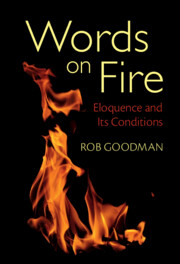Book contents
4 - Debatable Land
Macaulay, Tocqueville, and the Art of Judgment
from PART II - Eloquence and the Moderns
Published online by Cambridge University Press: 16 December 2021
Summary
Chapter 4 turns to the historiography of Thomas Babington Macaulay to investigate tensions between classical eloquence and the emergence of mass politics. Macaulay’s influential History of England revived the classical notion of history as a branch of rhetoric, as well as the classical practice of narrating political change through simulated speech. For Macaulay, writing history as rhetoric had a clear normative value: it was an effort to glamorize practices of political judgment that he saw as increasingly endangered by mass politics. While Macaulay contributed to the growth of political participation through his advocacy of the Reform Act, he also feared the ways in which mass politics might render political life less susceptible to classical norms of eloquence. His History is a response to this fear: an attempt to educate a judging public. The chapter concludes by contrasting his attempt with Tocqueville’s Ancien Régime. In comparison to his contemporary Macaulay, Tocqueville fixed his attention on secrecy rather than publicity, long-term processes rather than charged moments of persuasion, and tragic necessity rather than deliberative contingency. Nevertheless, Macaulay’s historiography offers something that Tocqueville’s lacks: a temporally sophisticated account of rhetoric, in which the orator’s responsibilities include cultivating practices of judgment over time.
Keywords
- Type
- Chapter
- Information
- Words on FireEloquence and Its Conditions, pp. 118 - 157Publisher: Cambridge University PressPrint publication year: 2021

